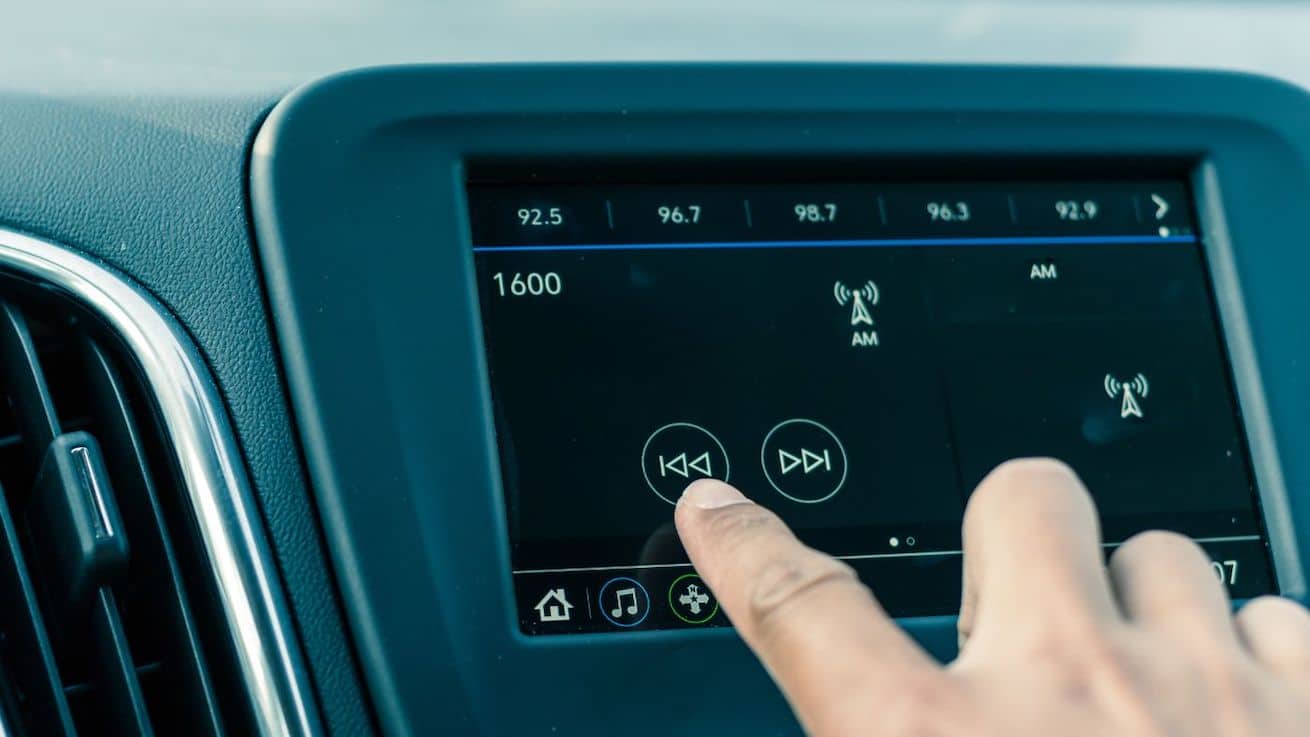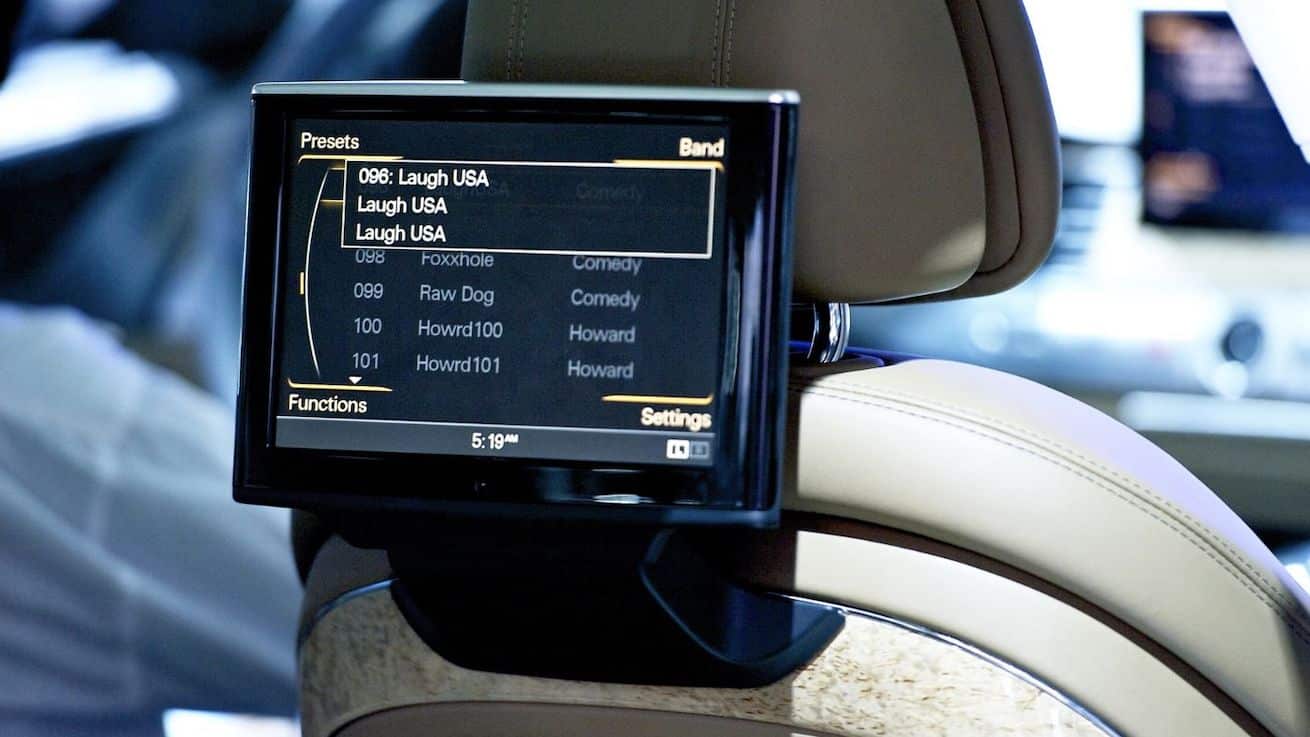Chevy Radio Turns On But No Sound – Fix Chevy Silverado Radio
Does your Chevy radio turns on but no sound comes out? When Chevy owners turn on their car radio they often come across a problem where they don’t hear any sound. This issue could be due, to either the amplifier or the factory radio among factors. Luckily there are a steps you can take to tackle this problem.
If you notice that the rear speakers of your Chevrolet radio aren’t producing any sound even though the light is on it’s an idea to check the amplifier and make sure there are no loose connections with your speaker cables. A loose connection on your driver door speaker will cause this issue.
If you have thoroughly inspected all the connections and haven’t found any ones it’s possible that the problem lies with the radio unit itself. This could be caused by either a hardware malfunction or a software related issue. If you find yourself in situations you might need to consider getting a radio or resorting to resetting it completely as a last resort.
Reasons Why Your Chevy Radio Turns On But Has No Sound

There can be various reasons why your Chevy radio turns on but has no sound. The most common issue is a faulty wiring connection, which can disrupt the flow of audio. Another possible reason is an issue with the speakers; they could be blown or damaged.
Sometimes, the amplifier, responsible for magnifying the output signal, might be broken. Yet another cause could be that your car radio is on mute or the volume is turned down unintentionally. Also, a malfunction in the radio system itself, such as issues with the output circuitry or software bugs could also be responsible.
Broken volume knob on your head unit
Dealing with a broken knob on your head unit can be incredibly frustrating. The head unit, being the control center of your car’s audio system, is essential for modulating the output levels according to your preference. A malfunctioning knob can disrupt this functionality, leaving you with uncontrollable loudness or an intolerable quiet.
This might go from a slight nuisance during short commutes to a major source of irritation on long journeys. If not fixed, it may potentially deteriorate the enjoyment of your favorite tunes. Therefore, a prompt repair, or even a head unit replacement, is the optimum way to restore the harmony of your sound system.
Problems with the alternator
The alternator, an integral component of a vehicle’s charging system, can pose a variety of complications if not working properly. Issues may include difficulty starting the vehicle, dimming lights, a drained battery, or a noisy operation signifying worn-out bearings.
Besides causing inconvenience, a malfunctioning alternator compromises the reliability and efficiency of the vehicle. Regular inspection and timely maintenance are crucial to prevent alternator issues. Faulty alternators must be promptly replaced to avoid exacerbating the problem, potentially leading to a complete vehicle breakdown, hence posing a significant safety concern whilst on transit.
Loose wiring connections
In the realm of radio technology, loose wiring connections have been identified as a principal cause of sound problems. These problems are frequently experienced as distortions or interruptions in the audio output, curtailing the listener’s enjoyment of the radio program.
Faulty wiring, besides affecting the sound quality, can pose a potential safety hazard, making it imperative to address promptly. As such, regular maintenance checks and proper installation measures are strongly recommended to ensure the integrity of the wiring. Savvy listeners and radio enthusiasts would do well to prioritize these measures to optimize their listening experience and safeguard their equipment.
The stereo system has a blown fuse
A blown fuse in an radio unit, such as a speaker or amplifier, could potentially be the root cause of sound output issues. Fuses carry the imperative role of regulating the flow of electrical current throughout the system.
In situations where the electrical load surpasses the fuse’s rated capacity, the fuse will blow as a protective measure to prevent equipment damage from electrical overload. In the aftermath, this disruption in power supply results in compromised output quality.
Wiring system not functioning properly
Poor speaker connection can lead to dismal performance or even complete silence. Moreover, incorrect wiring may potentially damage the electronic devices they’re connected to, leading to further financial implications. It’s crucial to observe the polarity of speaker wires, ensuring the matching of positive to positive and negative to negative terminals on both speaker and amplifier.
Mishandling can cause distortion or lack of base. Some common signs of improper connection include intermittent output, quality distortion, or complete sound failure. Ensuring proper speaker wire connection is integral to enjoying crisp, unhampered audio.
Speaker wires are not properly connected
Speaker cables are vital components in a stereo system, connecting various devices such as speakers and amplifiers. However, if these wires are not properly connected, it can lead to noticeable disruptions in quality. This incorrect connection can produce an unclear, muffled or even absent sounds.
Sometimes, it also results in crackling noises or intermittent sound cutoffs. It’s essential to pay attention to polarity and clean connections when wiring speakers. If not addressed, this issue can lead to more serious damage or even failure in the device’s functioning.
Amplifier not working properly
The performance of a aftermarket radio relies heavily on an amplifier, but when it starts malfunctioning, the entire sound output gets affected. A faulty amplifier can have a myriad of symptoms such as distorted or no sound, intermittent functioning, overheating, or hum noise.
These problems can be due to various underlying causes, like poor maintenance, overloading, damaged components or wiring defect. It is crucial to address these issues promptly. Neglecting them can lead to progressive damage and potentially offense to listeners. Ensuring your amplifier works properly promotes a high-quality sound experience and prolongs the life of the radio unit.
Damaged speakers on your stereo system
Damaged speakers on your stereo system can significantly degrade your music listening experience. Typically, distorted or muffled sounds, and drop in output levels might indicate that the speakers are damaged. Often due to wear and tear, along with moisture exposure and accidental falls onto hard surfaces, they can sustain minor to major damages.
The main components such as woofer, tweeter or the speaker cone can be the victim. In some cases, if the wires connecting the system are damaged, it may lead to speakers sounding faulty. Unless you’re skilled at DIY repairs, it’s typically recommended to seek professional help to fix the speakers.
The car’s battery needs to be replaced
The car’s battery is an essential component that keeps the vehicle operational, powering everything from ignition to the electronic devices in your car. Over time, batteries wear out due to repeated cycles of charging and discharging, along with exposure to temperature variations.
Telling signs of a failing battery may include difficulties in starting your engine, dimming headlights, or a warning light on your dashboard. Regular inspection and maintenance of your car’s battery can prevent sudden breakdowns. However, bear in mind that typically, a car battery needs to be replaced every three to five years, depending on the usage and driving conditions.
Why does my car radio suddenly have no sound?

One possible reason why your car radio suddenly has no sound could be due to a malfunction in the radio itself or an issue with the speakers. The hardware undergoes wear and tear over time, potentially leading to various stock radio malfunctions. It could also be because of a blown fuse.
A fuse can burn out due to electrical overloads, perfectly blocking the flow of electricity and eventually resulting in no sound. Wiring issues are also a common culprit, where the wires connecting your radio and speakers might be loose or broken.
Alternately, it could also be a problem of your radio being stuck in ‘mute’ mode accidentally. Finally, it’s worth considering that you might be out of range of the radio station you’re tuned into, causing temporary loss of sound. Remove any door chime on your truck and replace the main fuse if it is blown.
How do I reset my Chevy radio?
If you are facing any problems, with the radio in your Chevy, such as connectivity errors or glitches the first step towards resolving them is to reset the radio system. To do this start by turning on your vehicle and initializing the radio.
Depending on the model of your Chevy there may be a button located on the front of the radio. If there is one, press. Hold it for a seconds until the system restarts. In case your radio does not have a button you can try removing the damaged radio fuse from the fuse box.
Remember to turn off your car before attempting this for safety reasons. By removing the fuse you cut off power to the radio effectively resetting it. Once you have removed and reinserted the fuse turn your car on. See if that successfully restarts your stereo system.
Why do I have power to my radio but no sound?

Experiencing power to your radio but receiving no sound is a situation that may be caused by several factors. One common issue could be that the cables connecting your stereo to the speakers are damaged or disconnected, inhibiting output.
Another reason might be related to a malfunctioning amplifier within your stereo system, particular in cars, where it boosts the signal strength received by the radio for clear and louder sound. It’s also possible that main settings on your device are incorrectly adjusted, such as the gain knob being turned down too low, or the mute function accidentally engaged.
Additionally, internal issues could be at play, like faulty wiring or a blown speaker. Lastly, if you’re using an external device with the car stereo, like a phone or MP3 player, you need to ensure the device’s volume controls are appropriately set. Troubleshooting these issues may require some expertise or professional help.
Last Updated on: March 16, 2025


You could’ve just scratched the surface, but you really went in. Respect.